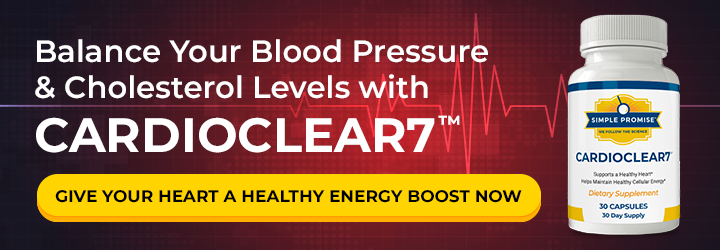Lifestyle
Nutrition
3 Common Medications That Could Be Secretly Stiffening Your Joints (Are you taking any of these?)
April 29, 2025 5 min read
You wake up feeling stiff and sore.
You chalk it up to aging or maybe sleeping in a weird position…
But what if the real reason your joints hurt isn’t your age — or even your activity level?
It could be the medications you’re taking.
Surprisingly, some of the most common medications — the ones your doctor may have prescribed for years — could be causing joint pain, swelling, and stiffness.
Let’s take a closer look at 3 everyday medications that could be secretly making your joints feel worse… and what you can do about it.
1. Statins (Cholesterol Medications)

Statins are some of the most widely prescribed drugs in the world — used to lower cholesterol and protect heart health.
But they come with an uncomfortable side effect that many people overlook: joint and muscle pain.
How Statins Affect Your Joints
Statins work by reducing the production of cholesterol in your liver. But in the process, they also reduce the production of coenzyme Q10 (CoQ10) — a nutrient that helps your muscles and joints function properly.
Low CoQ10 levels can lead to:
- Muscle aches and weakness
- Stiffness in your joints
- Increased inflammation in your body
Signs Your Statin Might Be Affecting Your Joints:
- Morning stiffness that lasts more than 30 minutes
- Muscle cramps or weakness
- Soreness after mild activity
What You Can Do:
- Talk to your doctor about adjusting your dosage or switching medications.
- Consider adding a CoQ10 supplement (check with your doctor first) such as CardioClear7, a powerhouse trio of ingredients that protect your heart naturally.
- Gentle stretching and low-impact exercise can help reduce stiffness.
2. Proton Pump Inhibitors (PPIs) – Acid Reflux Medications

If you suffer from heartburn or acid reflux, you might be taking a PPI like omeprazole (Prilosec) or esomeprazole (Nexium).
These medications work by reducing stomach acid — but they can also interfere with your body’s ability to absorb key nutrients.
How PPIs Affect Your Joints
When your stomach acid is too low, your body struggles to absorb:
- Calcium – which helps keep bones and joints strong
- Magnesium – which supports muscle relaxation and flexibility
- Vitamin D – which reduces inflammation and supports joint health
Over time, low levels of these nutrients can lead to:
- Increased joint pain
- Stiffness
- Weaker bones and cartilage
Signs Your PPI Might Be Affecting Your Joints:
- Stiffness after sitting for long periods
- Weakness or cramping in your legs
- More frequent joint aches and pains
What You Can Do:
- Ask your doctor if you still need to be on a PPI long-term.
- Try adjusting your diet to reduce acid reflux naturally.
- Consider taking a magnesium or calcium supplement (with your doctor’s approval).
3. Corticosteroids (Steroids for Inflammation and Allergies)

Corticosteroids like prednisone are often prescribed to treat inflammation, arthritis, asthma, and autoimmune conditions.
Ironically, while they help reduce inflammation in the short term, long-term use can actually make joint pain worse.
How Steroids Affect Your Joints
Corticosteroids work by suppressing your immune system and reducing inflammation. But over time, they can:
- Weaken cartilage and joint tissue
- Reduce bone density
- Increase the risk of joint degeneration
This leads to:
- Increased stiffness
- Slower recovery after activity
- More frequent joint flare-ups
Signs Your Steroid Might Be Affecting Your Joints:
- More stiffness in the morning
- Joint swelling after activity
- Weaker muscles and slower recovery
What You Can Do:
- Work with your doctor to find the lowest possible dose.
- Try to wean off steroids when possible (under medical supervision).
- Focus on strengthening your joints with targeted exercise and proper nutrition.
What To Do If You Suspect a Medication Is Causing Joint Pain
If you think one of your medications might be contributing to joint pain, here’s how to approach it:
1. Talk to Your Doctor

Never stop taking a medication without speaking to your doctor first. They may adjust your dosage or recommend an alternative.
2. Support Your Joints Naturally

- Stay active with low-impact exercise like swimming or walking.
- Eat a diet rich in anti-inflammatory foods (like leafy greens, berries, and fatty fish).
- Consider supplements that support joint health (like omega-3s, magnesium, and vitamin D).
3. Hydrate and Rest

Proper hydration and quality sleep can help your joints recover and reduce inflammation naturally.
Medications Aren't the Only Answer
It’s easy to assume that joint pain is just part of getting older — but sometimes, it’s the medication itself that’s causing the problem.
If you’ve noticed increased stiffness, swelling, or pain after starting a new medication, don’t ignore it.
Your body might be trying to tell you something.
By working with your doctor and supporting your joint health naturally, you can reduce discomfort and keep moving with confidence — at any age.
Final Thoughts
Joint pain can feel like a mystery — but understanding the role of medication can help you get to the root of the problem.
It’s not always about “wear and tear”… sometimes it’s about what’s happening inside your body.
Take care of your joints, listen to your body, and don’t be afraid to ask questions — you deserve to feel strong, flexible, and pain-free!
Feeling curious?
Start by talking to your doctor, adjusting your medication if needed, and supporting your joint health naturally.
You’ve got this!


















